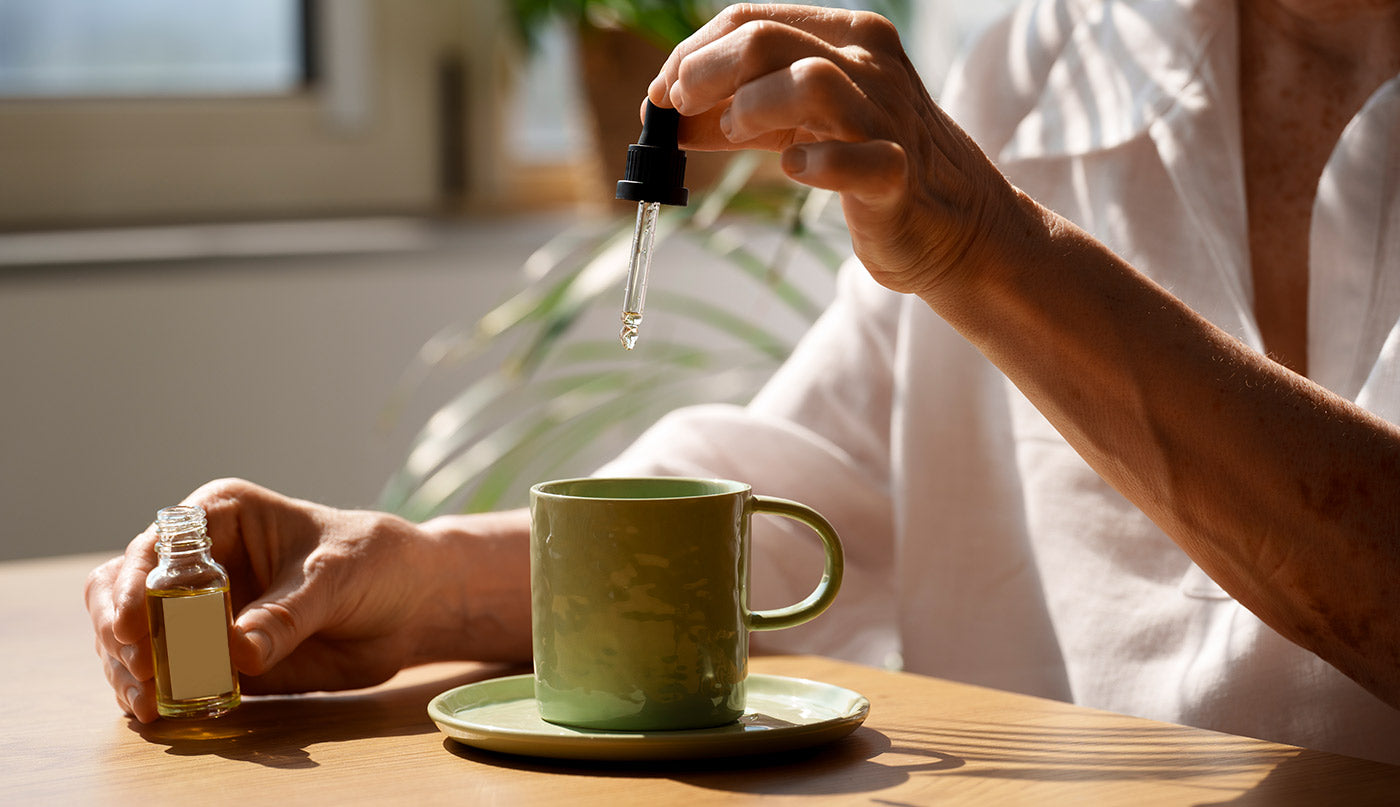
Natural Treatments for Crohn’s Disease
Crohn’s disease is a type of inflammatory bowel disease (IBD) that causes chronic inflammation anywhere along the digestive tract, from the mouth to the anus, though it most commonly affects the small intestine and the beginning of the colon. Symptoms of Crohn’s disease include abdominal pain, diarrhoea, fatigue, and weight loss, and it can significantly impact quality of life.
While conventional medications and medical treatments remain essential, many individuals are increasingly exploring natural medicine to help manage symptoms and enhance their overall quality of life.
Understanding Crohn’s Disease
Crohn’s disease is an autoimmune condition where the immune system mistakenly attacks healthy cells in the digestive tract, leading to inflammation and, over time, damage to the bowel wall. The exact cause of Crohn’s is unknown, but a combination of genetic, immune, and environmental factors is thought to play a role. The disease often follows a relapsing-remitting pattern, with periods of symptom flare-ups followed by remissions.
Why Consider Natural Medicine for Crohn’s Disease?
Natural medicine offers a range of therapies that can complement conventional treatment, focusing on reducing inflammation, supporting digestive health, and addressing nutritional deficiencies. These approaches are not replacements for prescribed medication but can enhance symptom management, improve quality of life, and support the body’s healing processes.
Benefits of Natural Medicine for Crohn’s Disease:
- Symptom Relief: Certain herbs, supplements, and dietary adjustments can help alleviate symptoms like pain, diarrhoea, and fatigue.
- Digestive Health Support: Probiotics, prebiotics, and gut-healing herbs help balance the gut microbiome, which can reduce inflammation and improve digestion.
- Overall Well-Being: Holistic therapies, including stress reduction techniques, can enhance mental health and help manage the emotional impact of living with a chronic condition.
Key Natural Medicines for Crohn’s Disease
Here are some commonly used natural medicines for managing Crohn’s disease:
1. Herbal Remedies
Various herbs offer anti-inflammatory and soothing properties that may benefit people with Crohn’s disease:
- Turmeric (Curcumin): Curcumin, the active compound in turmeric, is well-known for its anti-inflammatory effects. Studies have shown that curcumin may reduce inflammation in the digestive tract and improve symptoms during flare-ups.
- Aloe Vera: Aloe vera is known for its soothing effect on the digestive system. It may help reduce intestinal inflammation, but choose aloe vera products without latex, as this can act as a laxative and irritate the gut.
- Boswellia (Frankincense): Boswellia has natural anti-inflammatory properties and may help reduce symptoms in Crohn’s patients by targeting inflammation.
- Slippery Elm: This herb contains mucilage, a gel-like substance that coats the lining of the digestive tract, which can protect against irritation and reduce inflammation, easing symptoms like diarrhoea and cramping.
2. Probiotics and Gut Health Supplements
Maintaining a healthy gut microbiome is essential for managing Crohn’s disease, as an imbalance in gut bacteria can worsen symptoms.
- Probiotics: Probiotics, particularly strains like Lactobacillus and Bifidobacterium, may help restore balance to the gut microbiome, support digestion, and reduce inflammation. Probiotics can be taken as supplements or through fermented foods like yoghurt, kefir, and sauerkraut.
- Prebiotics: Prebiotics, found in foods like garlic, onions, and bananas, act as food for beneficial bacteria, promoting a healthy gut microbiome.
- L-Glutamine: This amino acid supports intestinal health and may help repair and protect the gut lining, reducing permeability and possibly preventing flare-ups.
3. Omega-3 Fatty Acids
Omega-3 fatty acids, particularly those found in fish oil, have anti-inflammatory properties that may help reduce intestinal inflammation in Crohn’s disease. Some studies suggest that omega-3 supplementation may decrease the frequency of flare-ups, though results can vary. Omega-3s are also found in flaxseeds and chia seeds.
Holistic Treatments for Crohn’s Disease Symptoms
Alongside natural medicine, holistic treatments play an important role in supporting patients with Crohn’s disease. These treatments focus on the mind-body connection and address the physical, emotional, and mental aspects of the condition.
1. Stress Management
Stress is a known trigger for Crohn’s disease flare-ups, making stress reduction techniques an essential part of holistic care.
- Mindfulness Meditation: Practising mindfulness helps reduce stress and improves emotional well-being, helping patients manage flare-ups more effectively.
- Yoga and Tai Chi: Gentle exercises like yoga and tai chi can reduce stress, improve flexibility, and strengthen the body, reducing discomfort and enhancing relaxation.
- Breathing Exercises: Techniques like diaphragmatic breathing activate the body’s relaxation response, which can help relieve abdominal pain and reduce anxiety.
2. Acupuncture
Acupuncture, a traditional Chinese medicine practice, involves inserting fine needles into specific points on the body to stimulate healing. Some research suggests that acupuncture may help relieve abdominal pain, improve digestion, and promote relaxation in people with Crohn’s disease.
3. Diet and Nutrition
Dietary changes can play a significant role in managing Crohn’s disease symptoms and supporting gut health. While dietary needs vary among individuals, some general guidelines include:
- Low-Residue Diet: A low-residue diet limits high-fibre foods, reducing the volume of undigested material in the digestive tract. This may help ease symptoms like diarrhoea and abdominal pain.
- Anti-Inflammatory Foods: Incorporate anti-inflammatory foods such as leafy greens, berries, nuts, and fatty fish to help reduce inflammation and support the immune system.
- Avoiding Trigger Foods: Certain foods, such as dairy, gluten, caffeine, and spicy foods, can aggravate symptoms in some people with Crohn’s disease. Keeping a food diary can help identify personal triggers.
4. Physical Activity
Regular physical activity benefits both mental and physical health, supporting digestion, reducing stress, and enhancing mood. Low-impact activities, such as walking, cycling, and swimming, are ideal for Crohn’s patients, as they provide health benefits without placing excessive strain on the body.
Self-Care Tips for Managing Crohn’s Disease Naturally
Incorporating these self-care practices can support natural treatments and improve quality of life for those with Crohn’s disease:
- Stay Hydrated: Drinking plenty of water is essential, especially during flare-ups, to prevent dehydration.
- Prioritise Sleep: Quality sleep helps manage stress and inflammation, supporting healing and symptom relief.
- Focus on Smaller, Frequent Meals: Eating smaller meals more frequently can ease digestion and reduce strain on the gut.
Summary
Natural medicine offers a valuable complement to conventional treatments for Crohn’s disease, helping to relieve symptoms, support gut health, and improve overall well-being. From anti-inflammatory herbs and probiotics to stress management techniques and cannabis, there are numerous natural options for those seeking a holistic approach to managing Crohn’s disease.
At Helthy, we provide personalised treatment plans that incorporate both medical and natural therapies to meet each patient’s unique needs. Always consult a healthcare professional before starting any new

